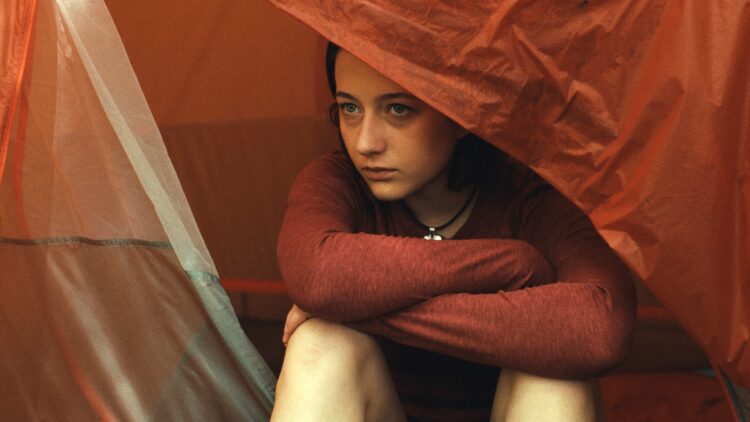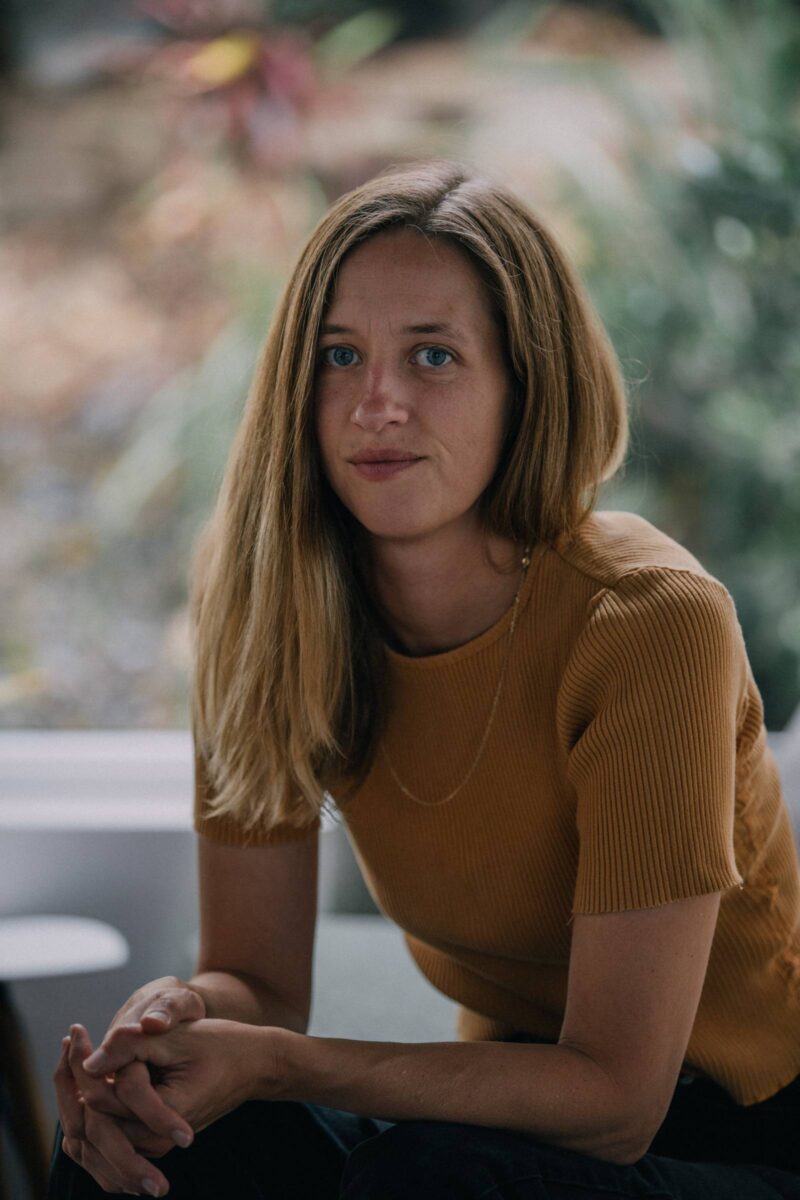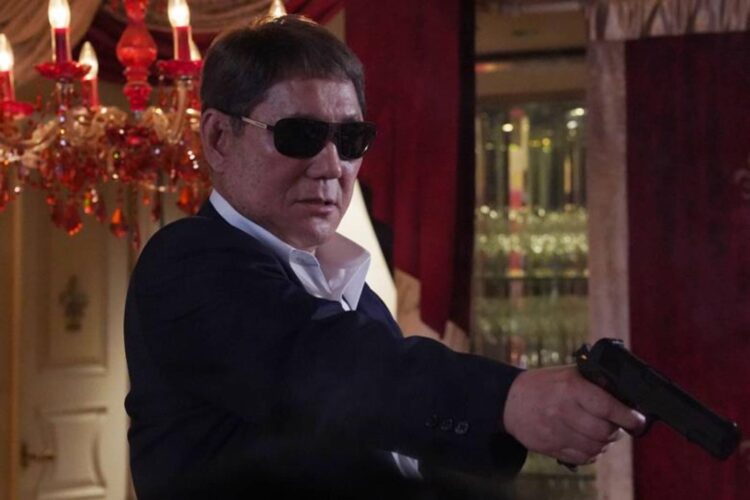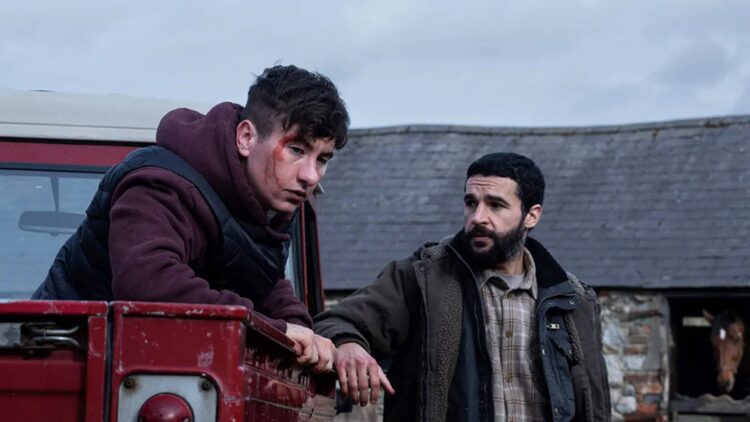

The best directorial debut of the year, India Donaldson’s Good One, is a carefully-observed portrait of both womanhood and fatherhood, capturing the 17-year-old Sam (Lily Collias, in a revelatory breakthrough performance) who embarks on a camping trip in the Catskills with her father (James Le Gros) and his best friend (Danny McCarthy). As the men are in the middle of a midlife crisis of sorts, Sam is witness to their mindless banter and subtle indecencies, culminating in a piercing point of no return.
Ahead of the film’s limited release beginning this Friday, I spoke with Donaldson about the character dynamics, the film’s subtle accumulation of details, the Hou Hsiao-Hsien and Kelly Reichardt films she watched as inspiration, and the journey from Sundance to New Directors/New Films to the Cannes Film Festival.
The Film Stage: Can you talk about how you initially formed the dynamic between these three characters? In some ways, it feels like an update on Old Joy but with an entirely new perspective.
India Donaldson: When I wrote the script, it was like deep COVID, and I was living back at home for the first time since high school, basically. And I have two half-siblings who at the time were in high school and I was kind of reflecting. I never thought about, before this moment, exploring that moment in film or writing. But through them this triangulation happened where I was reflecting on my own teen years and memories, of the ways that I dealt with conflict, the ways that I was avoidant of conflict, just my qualities of being in the world as a teenager. And how I felt like I had spent my 20s kind of trying to beat back certain instincts I had––to please or this kind of thing that had worked for me as a teenage girl, I feel like it wasn’t working for me in my professional life. I felt like I didn’t have the confidence to really pursue what I wanted to pursue, all these things. I just wanted to look at that moment of girlhood where you are shifting away from being ostensibly under the protection of your parents, but also realizing like, “Oh, I’m actually not protected by the world. I have to figure out my own, my own way forward.”
If you just look at the logline you could think it’s like a coming-of-age movie, but I feel like throughout the movie you learn she’s actually more mature in some ways, and level of maturity is not defined by age. She’s picking up on different social cues. What was it like writing her character and after you met Lily, did her character expand?
The character was on the page for sure, but the moment I met Lily and saw her audition, she just had added this edge to the character. I was always kind of nervous about the character that she would come across as too much of a doormat. That it would be sort of unsatisfying to watch somebody repeatedly act kind of in service of these men and their needs and struggle with that. Lily just had this quality where even when the character’s at her most obedient, I could always feel her pushing against it. Because I think Lily herself has a natural kind of rebellious [spirit]. She’s a real freethinker and has this incredible confidence that the character doesn’t have. But I think it bleeds into the performance and so it evolved in that sense. As soon as it was sort of in her hands, the character became more powerful to me. Which was a cool thing to discover.

India Donaldson
I love any movie where it’s more about the subtle reactions and observational style of a million little details that add up. It makes the obvious breaking point so much more impactful. Can you talk about finding that careful structure in the writing process?
Thank you. The placement initially of “the turn” came out of my desire to allow the audience the opportunity to really get to know these men and I hope to empathize with them. It was really important to me that they are fully fleshed-out, complex human beings and that they aren’t flattened. I think you need the time to get to know them. I wanted the film to mirror her experience of easing into this trip, letting go of connectivity to her social life and all these things, ease into the experience of being with these men, walking at the pace that they are. I felt like the film needed time to settle into that as well. I love so many movies that turn on one moment and I think that’s always an interesting device. I was interested in inverting the more traditional placement of an inciting incident where something happens and then you see the fallout. It’s like, oh, what if it happens really late and then hopefully it kind of casts everything that came before it in a new light and that maybe you as the audience member are having the same experience as Sam. Where you’re reinterpreting little things that were said along the way, like a little off-hand gesture that she might have just been like, “Whatever, that’s just a meaningless thing.” All of a sudden it’s like, “Oh, actually, that was weird.”
The hope is that the audience is maybe, in real-time, realizing that, oh, the thing that I was worried might happen actually did happen on some level. Which I think is like the experience of Sam or like so many of us where you have a gut feeling that you don’t want to be true so you push it aside. For all those reasons, it felt important for the moment to come late in the film and I wanted there to be a sharpness to the quality of the before and after. Where the humor, the easiness of everything that came before gets kind of drained out and the film closes in on Sam.
I was just rewatching the film for the third time. It struck me even more in that final section how kind of quiet it is. It really lets the audience reflect on what they saw the previous hour. Were there any influences you talked to your crew or cast about? Or was it more of a conversation?
Wilson Cameron, who shot the film, and I have collaborated many, many times before and I think we’ve known each other for over ten years. We’re always in conversation about the things we love and we would just specifically about this movie, but also just in general, pass back and forth things that we wanted to talk about together. I remember he had me watch Millennium Mambo and Happy Hour in the lead-up and just the patience of those films and the kind of confidence, the rhythm of the shooting style, and the editing, definitely informed our approach.
What did I bring to the mix? I mean, we watched a lot of movies where the characters are moving at a walking pace. We definitely revisited Old Joy and Meek’s Cutoff and we watched Gerry.
I watched that for the first time last week. I loved it.
Yeah. Oh my God, that movie is beautiful, too. Yeah, just thinking about: how do you shoot people walking in the woods or walking in, not the woods necessarily, in any landscape? And what is the relationship between the landscape and the people in it? I think all of those movies speak to the things we are thinking about, like wanting to be close with the characters at times and then also pull back and show them not only in the space, but also where they are in space in relation to each other.
You mentioned at New Directors/New Films that you shot the film in 11 days, but there’s a patience to the film and it doesn’t feel rushed at all. With it being your first feature, how did you know you were confident enough to move on? And how aware were your actors of how they would be framed with the close-ups?
You know, the schedule in many ways was the luck of all of us following our instincts. And I think for me, the casting as well as the collaboration with Wilson, which I was speaking about before, the fact that we had spent years developing a visual language and collaboration with each other and didn’t need to get to know each other or each other’s communication style in the process of making this film. We already have that. So I don’t think I could have done it with a new DP, a new collaboration there. It felt like an extension of and building upon work that we’d already been doing together. And then with the actors I think just casting three people who, in all of their different ways of working, were just reliable. They did all the preparation work that they needed to do to be able to shoot this movie very quickly.
So, it felt like all the kind of informal preparation we did before––Lily and James would periodically Zoom, and just talk––not about the script or the characters, just chat. And I would listen and just the preparation of me observing how they communicated with each other, seeing the kind of natural chemistry that they had as human beings and then encouraging them to build upon that. When we were shooting, I’m so lucky that they are all professionals and incredible actors and just came prepared to move through things really quickly. But also shooting outdoors is a big part of it. We weren’t spending hours tinkering with lights. We were just sort of like, “Okay, let’s get the gear in the woods and lock it quickly and start shooting.” We were able to move quickly and maximize the time where the camera was rolling and the actors were in character.
Watch an exclusive clip above.
The movie is as much about womanhood or girlhood as it is fatherhood in some ways. What was your inspiration there? Also making sure both of the male characters are different in some ways and not representing the same viewpoints.
I had a kid right after I wrote the first draft of the script and then reopened the script when my son was like four months old, five months old, and I just had this experience in becoming a parent where it was like overnight… I don’t know if there’s something chemical that happens in your brain, but just overnight, I felt like I had this new ability to empathize with my parents, as parents, and in their roles as parents. And to see more layers to their experience or something. I remember doing a pass that was really in service of the guys and their relationship. It was always important to me from the beginning because I think this is something I value and appreciate in the films that I love. When characters that behave badly are still treated with an empathetic lens, I find that the most satisfying thing to watch and to write. I felt the disappointment that Sam feels would be felt in a deeper way if these guys were more fully fleshed out. I wanted them to disappoint themselves as much as they’re disappointing her.
This is the only film this year to play at Sundance Film Festival, New Directors/New Films, and Cannes Film Festival. What was that journey like, and then teaming with Metrograph Pictures as their first big release under David Laub?
It was all very unexpected. We wrapped the film on June 30th of last year. So, almost exactly a year ago, and edited the movie in like ten weeks for a Sundance deadline just because if we can, we gotta do it, just got to try. I was really prepared for disappointment. Honestly, because the goal has to be to make a movie. And that’s what I always said, we just got to finish the movie and so getting into Sundance was really surreal. We didn’t have nearly enough money to finish the movie or get to Sundance. So it was like truly a real scramble at the end.
It’s crazy. I had this moment when I first learned that Metrograph was interested in acquiring the film and that David Laub was heading Metrograph Pictures. I had this really kind of surreal moment where I was like, this is the man who has been shepherding the work of filmmakers who I so admire and look up to and I’ve been so grateful that they’ve had the resources to make work and support to distribute that work. And it was so touching that there was interest in our film from him and from Metrograph. I lived in New York so long and had so many film-going experiences there specifically that have shaped me. So, [I’m] just grateful. That’s the word, relieved and grateful.
Lastly, are you already writing another film and what did you most take away from this experience that’s guiding the next steps for you?
For me, I feel like all I had to go on with Good One was instinct and trusting myself and if I tell a story that’s meaningful to me hopefully it will resonate with other people. But then also trusting my collaborators and bringing in people who I knew would deepen the story and the process and bring their own creative points of view. And I feel like this film is really a product of all of the specific people that were involved. If one of those pieces of the puzzle were different, the film would be fundamentally different. And so, yeah, I don’t know what’s next. But I think following those instincts and hopefully getting to work with some of those same people again is the goal.
Good One opens in limited release on August 9 and will expand.
The post India Donaldson on Good One, Girlhood, and the Rhythms of Hou Hsiao-Hsien and Kelly Reichardt first appeared on The Film Stage.



